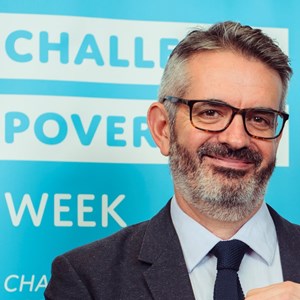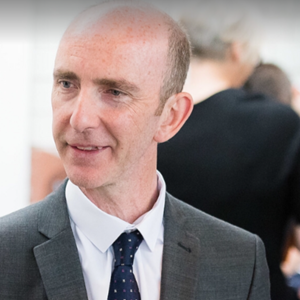"All of us that are concerned about poverty, in the third sector, funders, the private and public sectors, should be increasingly focused on prevention."
Our society is going through a period of tremendous change as a result of the coronavirus pandemic – jobs, our health and social care systems, and our communities will all be different when we finally emerge from the pandemic. Individuals too, may be severely affected.
Of course, in the midst of this crisis it is difficult to know exactly what the shape of our society will be in a year or two, let alone in 10 years’ time. There will be choices to make as we manage the virus and emerge – eventually – from this crisis. There will be choices to be made about the kind of society we all want to live in. Some choices will be difficult, others less so, but all will hopefully lead to reenergised calls for change, and a push against a return to the “old normal”.
We know that going into the pandemic we already faced some significant challenges. Poverty was increasing following radical changes to our social security system over the last decade. Too many people were in jobs that weren’t secure or didn’t pay enough to help them to keep their heads above water. Many people were struggling to find or afford a decent home. And some, young people, women, disabled people, those from black and minority ethnic communities, were more likely to experience these problems.
These challenges have been, to use disability campaigner Tressa Burke’s phrase, ‘supercharged’ by the pandemic. we have seen unemployment steadily climb, with fears of worse to come. Gaps in educational attainment are likely to have been made worse, despite the best efforts of parents and teachers. Food insecurity is predicted to increase sharply over the coming months, and that’s while we are still in the eye of the storm, rather than emerging from it.
It is this context that makes the new strategic approach from The Robertson Trust, focused on poverty and trauma, all the more timely, important and necessary. Community and voluntary organisations across Scotland have responded quickly and effectively to the new needs that the pandemic has brought, and we must be grateful for their resolve and resilience in these most challenging of times.
What enabled some of that response must be retained and supported in the future. Flexibility and trust were central to the approach of many funders during the initial phase of the crisis. Extensions were given for grants, significant changes in priorities were made, monies were repurposed quickly and efficiently. It was clear that speed and agility were being valued more than sticking to outdated plans.
There was an evident sense of common purpose on the part of both those who give and those who receive funding and a trust that organisations delivering vital services knew the best action to take while surrounded by panic and uncertainly. Having a clear sense of common purpose ought to be at the heart of the relationships between funders and the third sector.
Where that common purpose exists, then funding relationships are more likely to be effective and outcomes more impactful. In the past, in my experience, securing funding sometimes felt like needing to undergo a series of contortions to make your idea fit with someone else’s plan.
Over the last 10 years we have seen a greater emphasis on discussion and collaboration between funders and the third sector. By working together on ideas where there is a shared common goal, sharing the knowledge, perspective and expertise that funders can bring to a projects’ development and implementation, can lead to real and substantial change, while recognising that those on the ground are the experts in what is required to support people and communities in a meaningful way.
Perhaps the best example of this collaboration for me has been the development of the Living Wage accreditation. Grassroots campaigners in London developed a deep understanding of the realities of life for low paid workers. Over several years they worked with creative funders to develop innovative ways to change this reality and from this accreditation and the Living Wage Foundation developed at the start of this decade. To date, more than an estimated £1billion has been gained by low paid workers as a result. This is the potential that better collaboration can bring.
When I met with staff and board members of The Robertson Trust at the beginning of the year to contribute the planning process, it was clear that there was a desire to make a real difference to the issues of poverty and trauma. The new strategy puts in place the approaches that will be needed to make this difference.
Collaboration will clearly be central to that approach. Finding ways to work alongside those who have experienced poverty and trauma will be vital if the Trust is to fully deliver on its strategy, and I am delighted with their commitment to doing just that. Alongside collaboration, it is the emphasis on prevention and systems change that will make a real difference, one that should endure long after this 10-year strategy has come to an end.
All of us that are concerned about poverty, in the third sector, funders, the private and public sectors, should be increasingly focused on prevention. Even as we prepare for more people to be swept into poverty as a result of coronavirus, retaining a focus on preventing poverty in the longer term is critical.
Challenge Poverty Week gives us an opportunity to focus on doing just that and finding the solutions that exist to address poverty, to address the trauma too often associated with poverty, and to help create a movement to end it, once and for all, in Scotland. Funders like The Robertson Trust, who share the commitment and compassion to see an end to poverty are a vital part of that movement and I congratulate them for their bold and ambitious strategy that will surely play a part in achieving this goal.


